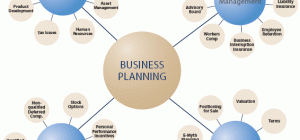 There are many factors that are said to affect your workers productivity, many of which have had studies conducted supporting the ideas including; temperature, other co-workers, job role, office hours, office facilities, the amount of space and whether they have their own working area or are working in an open plan office.
There are many factors that are said to affect your workers productivity, many of which have had studies conducted supporting the ideas including; temperature, other co-workers, job role, office hours, office facilities, the amount of space and whether they have their own working area or are working in an open plan office.
Research
It has been suggested that workers who share an office take more sick days than those who have their own enclosed spaces. A study conducted by the Scandinavian Journal of Work found that people who worked in an open plan office took 62% more sick days on average than people who work in separate spaces. It was suggested that a reason behind this could be because viruses, bacteria and illness can spread more easily in open spaces. Another potential reason found was that they lack a vast amount of privacy which causes a stressful environment to work within, therefore, causing sickness to be more likely.
The Dutch Journal of Facilities Management examined the effect of comfort levels within the office on staff productivity. It has already been identified by Roelofsen, from previous research, that poor office conditions caused sickness among many Dutch employees. A survey of 7,000 workers found staff to be absent 2.5 days a year because of complaints about their office environment - predominantly temperature. It was also noted that if the environment isn’t ideal for them to be working it then they don't work as hard, loosing between 5-15% productivity. Ever thought about the temperature of your office?
The problems
You need to make sure that your office has the right attitude; happy employees are productive employees. Everyone needs to feel like an individual, they need to understand their job role and need to be praised when they have succeeded in something. This will mean that your workers will no longer just work to get their pay check but they will go above and beyond to seek that positive recognition.
Many studies have shown that an employee's productivity is influenced by their relationship with their immediate supervisor - how well do you get on with your boss? When bosses fail to give positive reinforcement, make negative comments or blame others for mistakes, workers surrounding them become unhappy and their productivity levels are impacted significantly. Does your motivate you, inspire you, encourage and reward your good performance? Employees that don't have a direct connection with their boss and the company are more reluctant to go beyond the call of duty.
Research shows that roughly 69 million workers in the world were reported missing due to illness last year - this totals over 407 million days of lost time at work. Could this be related to the workers not having the right tools and the right technology? We need to be equipping our employees with the most efficient gear for their job role. Companies that aren't keeping up to date with the latest software could be running the risk of diminishing employee productivity. Research conducted by Intel, one of the world's largest semi-conductor makers, found that wireless notebook PS users increased their productivity by over 100 hours per year. They also conducted a study revolving around work habits where more than 100 Intel employees who had been upgraded to wireless PCs found an increase in work productivity of over 2 hours a week, meaning the cost of the notebooks were paid for within the first year. Is this something that you haven't really thought about? Perhaps cutting back the paperwork and using technology to shorten the route could increase staff happiness and allow them to provide the best business service possible.
What needs to change?
There are certain areas that you as a boss, supervisor or manager can be doing to ensure that your employees are joyful and satisfied.
- You need to make sure you have the right person for the right role; this especially applies when you are thinking about hiring. You need to be putting qualified and motivated people into high up positions to stimulate staff. By ensuring you hire the right person for the job it will save you money and time in the long run as it means the transition will be easier on all employees involved.
- Give your staff a feeling of purpose, by delegating small jobs in a large company when it all comes together your staff will feel a sense of achievement and accomplishment that they will have contributed to the project.
- You need to be open to two way communication; the best companies have a culture of open communication were all employees feel as if they can talk to their boss about any problems or issues they may be having. Employees need to feel involved and ‘in the know' as this in turn means they will exhibit a higher degree of satisfaction in their job role, meaning their productivity will be significantly higher.
- Healthy staff are productive staff. A good way to get your staff involved is by sponsoring health and fitness programmes in your local area, offering a deal of a discounted rate at your local gym, or even providing health snacks for free during meetings! Employers who are willing to encourage a healthy eating programme are able to reduce the number of sick days taken by staff, increase morale and improve the general well-being and happiness of all across the company.
- Manage the workforce but try to avoid micromanagement. Yes they do need to be managed and given direction but they also must be trusted with enough freedom to make their own decisions and adopt measure in which they think are the best to deliver results.
Remember your employees are your greatest asset! They are the first line of communication with any customers and they are directly related to all production and distribution lines, having a direct affect on the company's products and sales. Your workers are also the greatest marketing strategy; word of mouth, there is no one better that will be able to sell your product or service than your employees and by having happy and motivated staff will reflect well on your company.
Lilac James is a great lover of all things technology; she never goes anywhere without her mobile telephone and answering query calls from clients is an essential part of communication within her business. To make sure she never misses a call and thus never misses important clients, Lilac gets advice and help from 1stResponse business service whom she considers experts in the field.




![Awesome Things You Need in Your Office [According to Officeprinciples.com]](https://lerablog.org/wp-content/plugins/wp-thumbie/timthumb.php?src=http://lerablog.org/wp-content/uploads/2014/10/image1-300x199.jpeg&w=300&h=140&zc=1)


